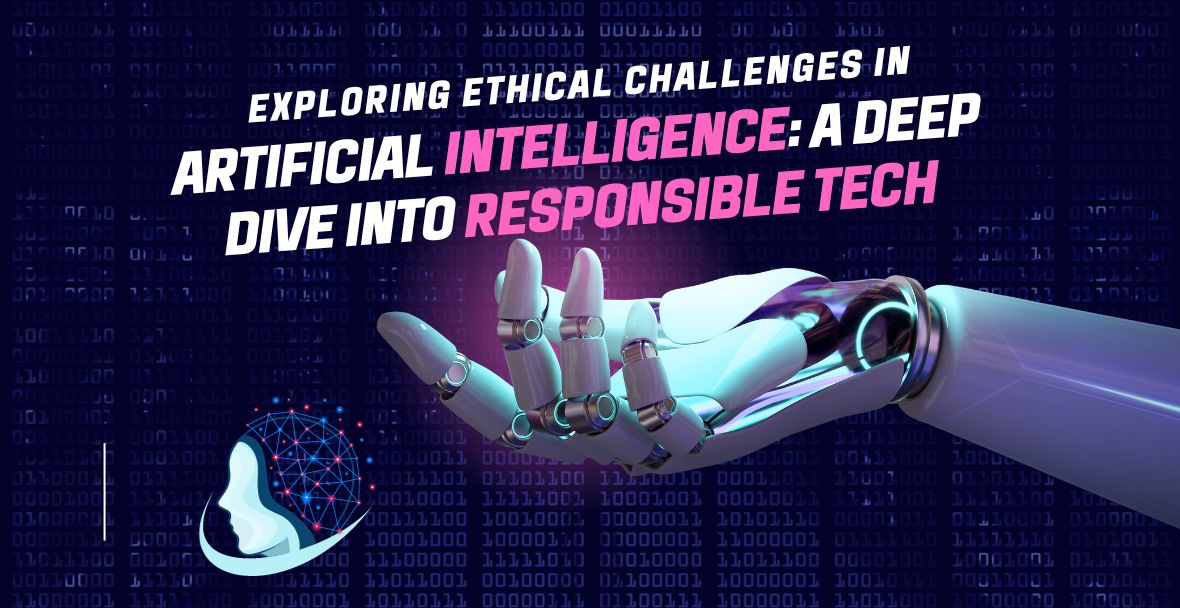Exploring Ethical Challenges in Artificial Intelligence: A Deep Dive into Responsible Tech
Exploring Ethical Challenges in Artificial Intelligence: A Deep Dive into Responsible Tech

Introduction
Have you ever pondered the pace at which artificial intelligence is evolving, reshaping the very fabric of our existence? Picture this: In the time it takes you to read this sentence, countless AI algorithms are processing data, making decisions, and influencing the world around us. Did you know that by 2025, the global AI market is projected to exceed $190 billion? The exponential growth is nothing short of astounding, but with this meteoric rise comes a cascade of ethical questions that demand our attention. As we hurtle into an AI-driven future, it’s imperative to pause and reflect on the ethical implications that accompany this technological juggernaut.
Artificial Intelligence, the once-fantastical concept of machines emulating human intelligence, has transcended sci-fi narratives to become an integral part of our daily lives. From predictive algorithms shaping our social media feeds to autonomous vehicles navigating our roads, AI’s influence is pervasive. This blog embarks on a journey to unravel the multifaceted impact of AI on society. As we witness AI’s transformative power, it becomes essential to scrutinize its ethical dimensions and the responsibility that accompanies its deployment. How do we ensure that the benefits of AI are harnessed ethically, without compromising the values we hold dear?
In this exploration, we aim to navigate the intricate landscape of ethical challenges in AI, placing a magnifying glass on the critical intersection of technology and responsibility. The thesis of this blog is to delve into the complex web of dilemmas arising from the rapid evolution of AI, with a focus on fostering responsible tech practices. As we delve into the ethical abyss, we will unravel pressing questions surrounding privacy, bias, accountability, and transparency in the realm of artificial intelligence. Brace yourself for a deep dive into the heart of the AI revolution, where the ethical compass of technology is put to the test.
Understanding Artificial Intelligence Ethics
AI ethics, at its core, is the ethical framework and principles that govern the development, deployment, and application of artificial intelligence. It serves as the moral compass guiding the creators, users, and regulators of AI systems, ensuring that these technologies align with human values and societal norms. In the dynamic landscape of technology, defining and upholding AI ethics is paramount to safeguarding against potential pitfalls. It involves addressing issues such as fairness, accountability, transparency, and the protection of privacy in the realm of AI. As we navigate the uncharted waters of artificial intelligence, a robust understanding of AI ethics becomes the cornerstone for responsible and sustainable technological advancement.
The significance of AI ethics cannot be overstated, as it directly influences the trajectory of technological innovation and its impact on society. Ethical considerations play a pivotal role in shaping the design and implementation of AI systems, ensuring that they benefit humanity without causing harm or reinforcing societal biases. The responsible development of AI hinges on conscious efforts to mitigate risks, uphold human rights, and foster inclusivity. By prioritizing ethical considerations, we pave the way for the creation of AI technologies that not only excel in performance but also align with the values and expectations of a diverse global population. In essence, the significance of AI ethics lies in its power to shape a future where technology serves as a force for good.
The roots of AI ethics trace back to the very inception of artificial intelligence as an academic discipline. As early as the mid-20th century, pioneers in AI recognized the need to establish ethical guidelines for the field. However, it is in recent decades, with the rapid advancement of AI technologies, that the discourse on AI ethics has gained prominence. High-profile cases of biased algorithms and concerns about the societal impact of AI have propelled the development of comprehensive ethical frameworks. Today, we stand at a critical juncture, where the lessons of the past converge with the urgency of the present, underscoring the historical evolution of AI ethics as an indispensable companion to the unfolding narrative of technological progress.
Key Ethical Challenges in Artificial Intelligence
A. Bias in AI Algorithms
Definition and Examples:
Bias in AI refers to the presence of systematic and unfair favoritism or prejudice in the algorithms used to make decisions. It occurs when the data used to train these algorithms contains inherent biases, resulting in skewed outcomes that disproportionately affect certain groups. One glaring example is in predictive policing, where historical crime data, often reflective of existing societal biases, can perpetuate and amplify discriminatory practices. Similarly, in the realm of hiring, biased algorithms may inadvertently favor certain demographics over others, perpetuating inequalities in the workforce. Understanding these instances is crucial to unveiling the nuances of bias in AI and addressing its root causes.
Consequences:
The consequences of biased AI algorithms are far-reaching and can exacerbate existing disparities in society. In sectors like finance, biased algorithms can lead to discriminatory lending practices, affecting marginalized communities’ access to essential resources. In healthcare, biased algorithms may result in unequal medical treatment recommendations, compromising patient care. The perpetuation of bias in AI not only undermines the principles of fairness but also has the potential to deepen societal divisions. Recognizing and mitigating these consequences is imperative to foster an AI landscape that upholds ethical standards and promotes inclusivity.
B. Privacy Concerns
Overview:
The intersection of AI and privacy raises profound concerns regarding the collection, storage, and utilization of personal data. As AI systems rely heavily on vast datasets for training and improvement, the potential for privacy infringement becomes a critical issue. From facial recognition technologies to voice-activated assistants, the constant monitoring and analysis of user behavior raise questions about the boundaries between convenience and privacy. It is crucial to navigate the delicate balance between leveraging AI for innovation and safeguarding individuals’ right to privacy.
- Case Studies:
Notable examples underscore the gravity of privacy concerns in AI applications. Surveillance systems utilizing facial recognition technology, deployed in public spaces, have sparked controversies for their intrusive nature. Social media platforms employing AI algorithms to curate personalized content face scrutiny for potential manipulation and data exploitation. These case studies emphasize the urgency of establishing robust regulations and ethical guidelines to protect individuals from unwarranted intrusions into their private lives. Balancing the potential benefits of AI with the need for privacy safeguards is a pivotal challenge that demands careful consideration and ethical scrutiny.
C.Transparency and Accountability
Importance:
Transparency stands as a cornerstone in the ethical deployment of AI systems. It ensures that users, stakeholders, and the public at large comprehend the inner workings of AI algorithms, promoting trust and understanding. In the context of AI, transparency is pivotal for holding developers and organizations accountable for the decisions made by algorithms. When the rationale behind AI-generated outcomes is opaque, it opens the door to potential biases, discrimination, and unintended consequences. Establishing transparency in AI systems is not just a technical necessity but a fundamental ethical imperative to foster responsible and accountable use of this powerful technology.
Lack of Accountability:
Instances of lack of accountability in AI systems have been regrettably common. One striking example is algorithmic decision-making in criminal justice, where opaque models have been employed to determine sentencing and parole. The lack of transparency in these systems has led to concerns about potential bias and discrimination. Furthermore, when AI systems fail, as seen in instances of autonomous vehicle accidents, the question of accountability becomes intricate. The consequences of insufficient accountability can erode public trust, hinder the acceptance of AI technologies, and undermine the potential benefits they bring to society.
D. Job Displacement and Economic Impact
Automation’s Role:
The rise of AI-driven automation has ushered in a new era in the workforce, transforming industries and job landscapes. As AI systems become increasingly adept at tasks traditionally performed by humans, concerns about job displacement and economic impact intensify. Automation can streamline processes, increase efficiency, and lower costs, but it also raises questions about the fate of jobs rendered obsolete. Understanding the role of AI in reshaping employment dynamics is essential to navigating the complex interplay between technological advancement and economic stability.
D. Job Displacement and Economic Impact (Continued)
Balancing Innovation and Inclusivity:
The challenge lies in striking a delicate balance between fostering innovation through AI-driven automation and ensuring inclusivity in the workforce. Rather than viewing automation as a threat, it can be harnessed as an opportunity for the creation of new, meaningful jobs that leverage uniquely human skills. Initiatives promoting entrepreneurship, lifelong learning, and the cultivation of creative and emotional intelligence become crucial components of a strategy that harmonizes technological progress with the preservation of economic stability.
Global Collaboration:
Addressing the economic impact of AI on employment requires a collaborative global effort. International collaboration can facilitate the sharing of best practices, the development of standardized frameworks, and the establishment of ethical guidelines for AI deployment. By working together, nations can collectively navigate the challenges of job displacement, ensuring that the benefits of AI are distributed equitably across diverse economies.
Solutions:
Mitigating the negative economic impacts of AI-driven automation necessitates proactive measures. Reskilling and upskilling programs can empower the workforce to adapt to the evolving demands of the job market, ensuring that individuals remain competitive in the face of automation. Policymakers play a crucial role in crafting frameworks that balance innovation with social responsibility, implementing measures such as job transition assistance and income support. Embracing a holistic approach that combines technological advancement with social and economic safeguards is paramount to achieving a future where AI contributes to prosperity without leaving segments of the population behind.
The economic impact of AI-driven automation is a multifaceted challenge that demands a holistic approach. By embracing innovation responsibly, fostering inclusivity, and promoting global collaboration, we can navigate the transformative effects of AI on employment while safeguarding the well-being of individuals and communities. The ethical deployment of AI extends beyond technological considerations, encompassing social, economic, and policy dimensions to create a future where the benefits of artificial intelligence are shared by all.


